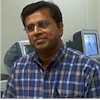
 |
| JULY 2004 | LITERALS |
|
||
|
Long time ago, before Christ, there was a Rabbi in ancient Judea by the name Solomon, who was very famous for his wisdom, honesty and generosity. Every Sabbath day, many youngsters, both men and women of Judea, after worshipping Yahweh, gathered in the shade of the trees of Synagogue to hear and discuss with Solomon whose wisdom they appraised as comparable to that of Wise King Solomon. Rabbi Solomon was so scholastic to answer any questions of the Youngsters with reference to the Holy Scriptures. Yohanes, Martha, Ezekiel, Esther, and Ahaz were some of the active participants of the group discussions with Rabbi. Esther, a young girl, summarized all the sweet discussions with Rabbi day to day as follows:
|
 |
|
|
Today we had an interesting discussion about how we gain knowledge. It was Ahaz who began the discussion. Rabbi: Really there is nothing extraordinary in my knowledge or power of understanding. It is an ability anybody can develop with a little effort. I can give you some guidelines that can be helpful.
Let us think of a newborn child. It knows almost nothing except that it has certain inborn instincts, but slowly begins to understand the world around using a knowledge acquisition mechanism consisting of the five senses and the mind. What is perceived by the senses is analyzed, compared and kept in memory by the mind. Suppose a child observes a cat, it receives an impression of the cat in his mind--its color, shape, size, sound etc. Afterwards when the child sees a dog, the process is repeated, and the new impression is compared to the first one. Certain similarities and differences are noticed.
This is the basic knowledge acquisition mechanism all of us use from birth to death. When I perceive something new, I understand it by comparing it to what I already know. Therefore, the same thing is understood in different ways by different people. Let us consider an example: Two children observe a dog at the same time, which is the second animal both of them see. One has already seen a horse, and the other, a rat. They understand the dog by comparing it to what they have already seen. Thus, the first child will think of the dog as small, though the other will think of it as large.
Thus, our knowledge is limited and relative, and there is no need to say that nobody can gain all knowledge. But it is always possible to improve our knowledge by sharing it with one another. This is an advantage we human beings have over animals and plants--we can share our knowledge using language. By being open to others, we can enrich our knowledge and life. If we think that we have the monopoly of all knowledge, we are making ourselves fools. Our ancestors were always willing to learn from others such as Egyptians, Greeks, Cannanites , Persians and Babylonians.
The present-day Jewish community has inherited the knowledge acquired by the past generations of Jewish community in easy-to-remember forms of language such as songs, stories, and proverbs. Recently, some of them were put to written form, and it is here before us--the Holy Scriptures.
We learn primarily from our own experiences in life. We improve our knowledge by comparing it with that of others, which includes that of our ancestors as recorded in the scriptures. We should not make the mistake of depending solely on either of them as the absolute source of knowledge. We need both--our own experiences and those of others.
It is true that our Holy Scriptures are as deep and wide as an ocean with a great wealth of knowledge acquired by the past generations of our community. Still, it is limited. Our community will continue to exist acquiring more and more knowledge, and making it a part of the scriptures as time goes on. Moreover, there are other communities with their own inherited wealth of knowledge, perhaps, even in written form. Hence, we should not be so foolish as to think that our Holy Scriptures are the absolute and final authority of all truth.
I am often surprised at why many grown-up people understand the scriptures just as children do. For example, children understand the Hymn of creation and the story of Adam and Eve literally. But grown-ups should be wise enough to distinguish between literal and metaphorical. In the story of Adam and Eve, a snake talks, though we know that in reality no animal or plant has the ability to use such a complex thing as a human language. In the same story, God walks in the garden, and Adam and Eve hear the sound of the footsteps. But we are sure that God is not like a man to walk with an audible sound. These stories are certainly not historical events, but products of imagination. But they present in a condensed and easy-to-remember form the wisdom of our past generations.
It was a very interesting discussion.
|
| Back | Home | Top | ||||||
|
|
|
|
THE CHRISTIAN LIGHT OF LIFE PUBLISHED ON FIRST DAY OF EVERY MONTH |